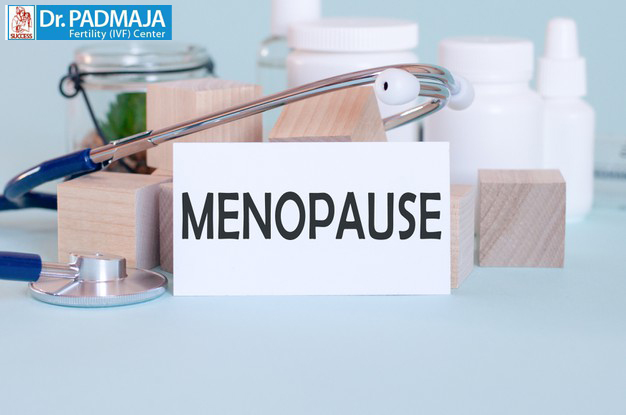The stage of menopause is a sign that you no longer may have the opportunity to bear a child. Many women still consider getting pregnant during this stage and consult women’s health specialists. Many wonder with this question – can women still get pregnant after menopause? Is it possible?
Fertility
The transition time of life occurs during menopause and many women experience hot flashes, irregular periods. But this does not confirm the fact that you can’t get pregnant. It does not convey that your fertility will end here. In fact, you have not officially reached the final phase of menopause until you have completed a whole year without a menstrual cycle. In fact, once you’re postmenopausal, your hormone levels change and ovaries will not be releasing any more eggs and you can no longer get pregnant naturally.
Since the first menstrual cycle begins for women, there is maximum production of estrogen, progesterone, luteinizing hormone (LH), and follicle stimulating hormone (FSH). They prompt ovaries to release mature eggs during ovulation.
Ovulation can’t occur unless your hormone levels are within the optimum range and if the egg is fertilized, LH stimulates progesterone production to ensure the pregnancy.
But during the time of transition, ovaries begin to produce less estrogen and progesterone. LH and FSH levels begin to rise as your ovaries become less responsive.
Must Read: Chances of Getting PREGNANT With IUI
Menopause
The accurate meaning of menopause is periods have stopped and if it has been an entire year, and if you are between the age of 40 and 55, you have reached the menopause stage and during this stage, LH and FSH levels remain high and estrogen and progesterone levels remain low and you can no longer ovulate and cannot conceive a child.
Postmenopause
During postmenopause, your hormone levels are not likely to be in a suitable range for ovulation and pregnancy.
Pregnancy after menopause
Living in the age of medical miracles, sometimes we wonder and discuss pregnancy after menopause or IVF after menopause. When postmenopause eggs are no longer working, there are few ways in which you can take the benefit of post menopausal IVF for women. You can use eggs you had frozen earlier in good age or you can use fresh or frozen donor eggs. Further, you will also be requiring hormone therapy to prepare your body for implantation and to carry a baby. IVF services create a great convenience with the facility of advanced medical technology that uses medical equipment and other systems to take care of eggs and sperm, further to process IVF treatment for women. Different stages – perimenopause, menopause and postmenopause. Perimenopause starts 8 or 10 years prior to menopause as ovaries produce less estrogens gradually. Menopause conveys a fact that there are no cycles of menstruation. The ovaries stop releasing egg. Menopause gets confirmed when you stop receiving cycles for a period of 12 months. Postmenopause requires good diet, health care and proper rest and exercise to stay fit and healthy.
Pregnancy with IVF in Menopause
Yes, with the procedure of post menopausal IVF for women, you can get pregnant. Postmenopausal pregnancy with frozen eggs and with young egg donors, it is very much possible to get pregnant. According to a recent survey, over 40% of women in the U.S. agree to the fact that postmenopausal pregnancy is increasingly preferred among women who are above the age of 40, with an increase in IVF of 2% and this prevailed in the year 2013 and 2014 for the women aged above 50.
Preparation to have a baby
Menopause with successful IVF can certainly enable you to deliver a newborn. But in order to be successful in this process, it is important to have a uterine rejuvenation process during the menopause stage to prepare a womb for the embryo. In this process, embryo returns to health after receiving estrogens and progesterone therapy. Hormonal stimulation is necessary as the uterus may shrink after menopause. Hormonal treatment before IVF treatment for women restores the endometrial lining to an appropriate size and thickness for a healthy pregnancy.
Conclusion
Women’s health specialists provide efficient IVF services to post menopausal IVF for women who wish to bear a child in their mid 50s. Although there are few risks, expert doctors are still making it successful to deliver healthy babies in a phenomenal manner to prove the advancement in reproductive medicine.

